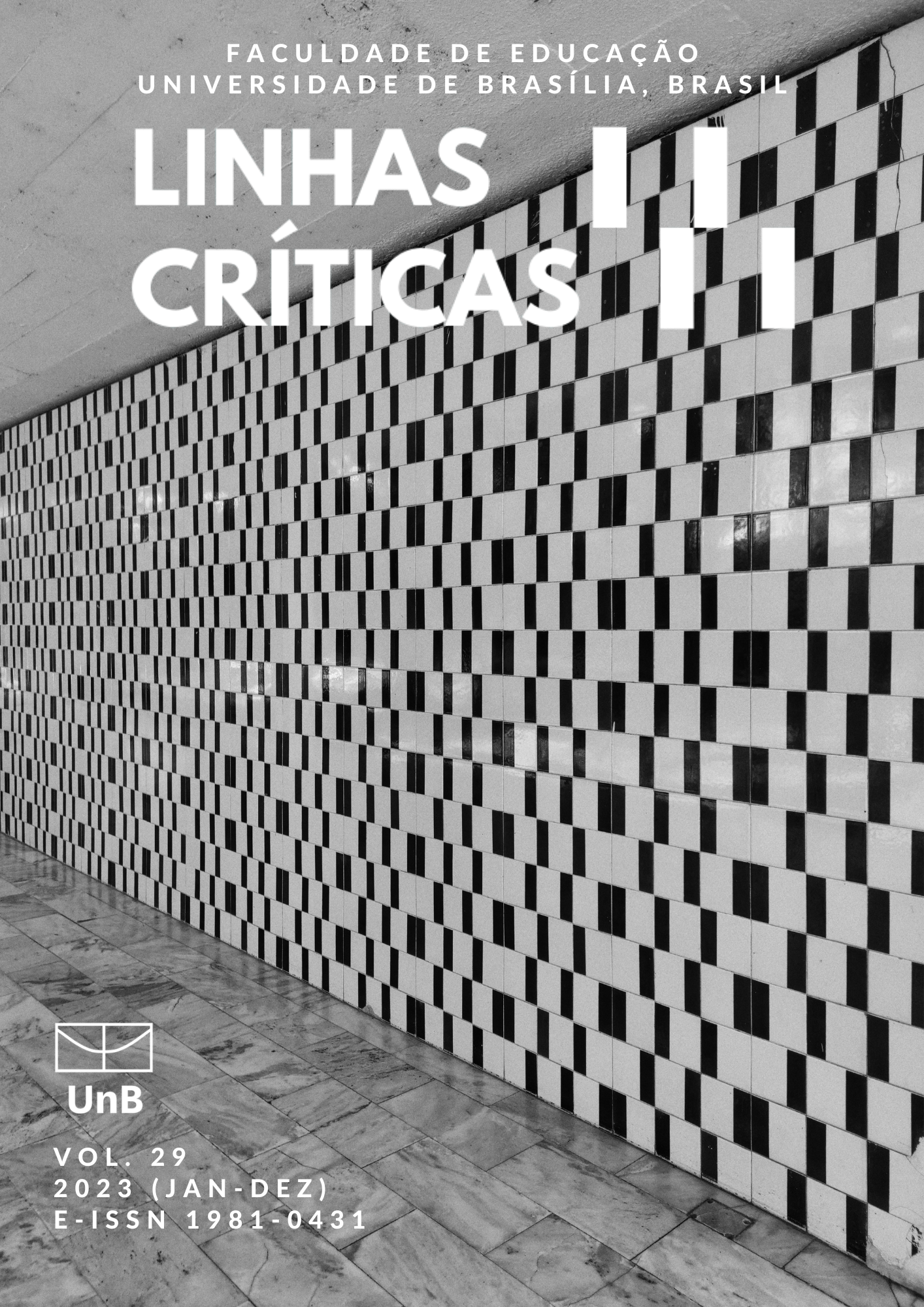Post-qualitative research and childhood studies
DOI:
https://doi.org/10.26512/lc29202350615Keywords:
Research Methodology, Post-qualitative research, ChildhoodAbstract
In this article, we present a discussion about the contributions of post-qualitative research to research on babies and children. This investigative tradition seeks to understand the human being in their living spaces, especially in relation to the changes caused by the ecological crisis, the relationship with technology and other marks of the Antropocene. Based on this, we intend to reflect on how post-qualitative research understands childhood as part of a living whole and how research methodologies are part of the transformation of the world, inviting us to carry out a type of investigation that considers the importance of these relationships among all forms of existence on planet Earth.
Downloads
References
Aitken, S. C. (2019). Jovens, direitos e território: apagamento, política neoliberal e ética pós-infância. Unb.
Bogdan, R. C., & Biklen, S. K. (1994). Investigação qualitativa em educação: uma introdução à teoria e aos métodos. Portugal.
Bridle, J. (2023). Maneiras de ser: Animais, plantas, máquinas: a busca por uma inteligência planetária. Todavia.
Denzin, N. K., & Lincoln, Y. S. (2000). Handbook of Qualitative Research. SAGE Publications.
Geraldi, J. W. (2011). Alfabetização e Letramento: perguntas de um alfabetizando que lê. Em E. Zaccur (Org.). Alfabetização e Letramento. O que muda quando muda o nome? (pp. 13-32). Rovelle.
Haraway, D. J. (2021). O manifesto das espécies companheiras: cachorros, pessoas e alteridade significativa. Bazar do Tempo.
Haraway, D. J. (2022) Quando as espécies se encontram. Ubu.
Haraway, D. J. (2023) Ficar com o problema: Fazer parentes no Chthuluceno. N-1.
Hohti, R., & MacLure, M. (2021). Insect-Thinking as Resistance to Education’s Human Exceptionalism: Relationality and Cuts in More-Than-Human Childhoods. Qualitative Inquiry, 28(3–4), 322–332. https://doi.org/10.1177/10778004211059237
Hohti, R., & Tammi, T. (2019). The greenhouse effect: Multispecies childhood and non-innocent relations of care. Childhood, 26(2), 169–185. https://doi.org/10.1177/0907568219826263
Hohti, R., & Tammi, T. (2020). Touching is Worlding: From Caring Hands to World-Making Dances in Multispecies Childhoods. Journal of Childhood Studies, 45(2), 14-26. https://doi.org/10.18357/jcs452202019736
Le Grange, L. (2019). Leading article: What is (post)qualitative research? South African Journal of Higher Education, 32(5). https://hdl.handle.net/10520/EJC-117d32a51d
Lopes, J. J. M. (2021). Terreno Baldio. Um livro sobre balbuciar e criançar os espaços para desacostumar Geografias: Por uma Teoria sobre a Espacialização da Vida. Pedro & João.
Lüdke, M., & André, M. E. D. A. (1986). Pesquisa em educação: abordagens qualitativas. EPU
Massey, D. B. (2013) Pelo espaço: uma nova política da espacialidade. Bertrand Brasil.
Murris, K. (2016). The Posthuman Child: iii. Em D. Kennedy, & B. Bahler (Ed.). Philosophy of childhood today: exploring the boundaries (pp. 185-197). Lexington Books.
Murris, K., Souza, L. de, Silva, H. da & Reynolds, R. (2022). Is the Sand Alive? Posthuman Experimentation with/in South African Early Years Teacher Education. Em A. Kuusisto (Ed.). The Routledge International Handbook of the Place of Religion in Early Childhook Education and Care (pp. 149-164). Routledge. https://www.taylorfrancis.com/chapters/edit/10.4324/9781003017783-13/sand-alive-posthuman-experimentation-south-african-early-years-teacher-education-karin-murris-luzia-aparecida-de-souza-heloisa-da-silva-rose-anne-reynolds
Tammi, T., Hohti, R., & Rautio, P. (2020). Editorial: Child-Animal Relations and Care as Critique. Journal of Childhood Studies, 45(2). https://doi.org/10.18357/jcs452202019734
Tsing, A. L. (2022). O cogumelo no fim do mundo: sobre a possibilidade de vida nas ruínas do capitalismo. N-1.
Vygotsky, L. S. (2012). Obras Escogidas – Tomo IV: Paidología del adolescente/Problemas de la psicología infantil. Antonio Machado Libros.
Published
How to Cite
Issue
Section
License
Copyright (c) 2023 Jader Janer Moreira Lopes, Sara Rodrigues Vieira de Paula

This work is licensed under a Creative Commons Attribution 4.0 International License.
Authors who publish in this journal agree to the following terms:
-Authors maintains the copyright and grants the journal the right of first publication, the work being simultaneously licensed under the Creative Commons Attribution License which allows the sharing of the work with recognition of the authorship of the work and initial publication in this journal.
- Authors are authorized to enter into additional contracts separately, for non-exclusive distribution of the version of the work published in this journal (eg publish in institutional repository or as a book chapter), with acknowledgment of authorship and initial publication in this journal.
-Authorers are allowed and encouraged to publish and distribute their work online (eg in institutional repositories or on their personal page) at any point before or during the editorial process, as this can generate productive changes as well as increase the impact and the citation of published work (See The Effect of Free Access).



